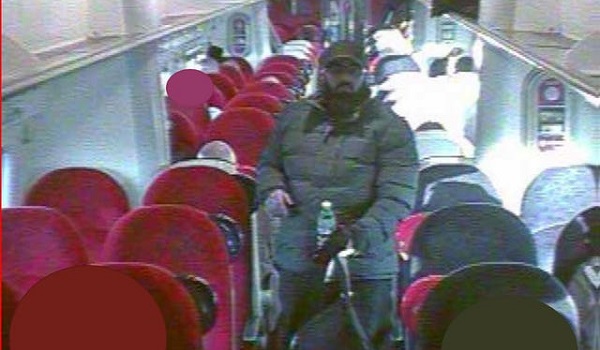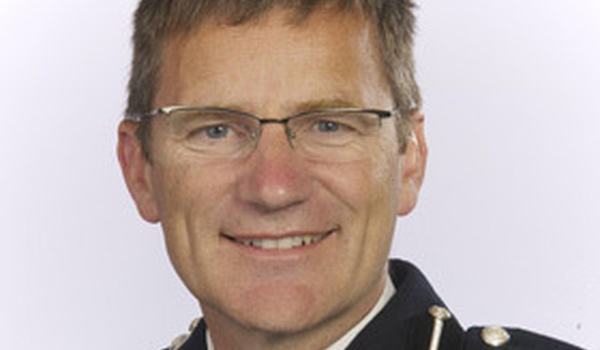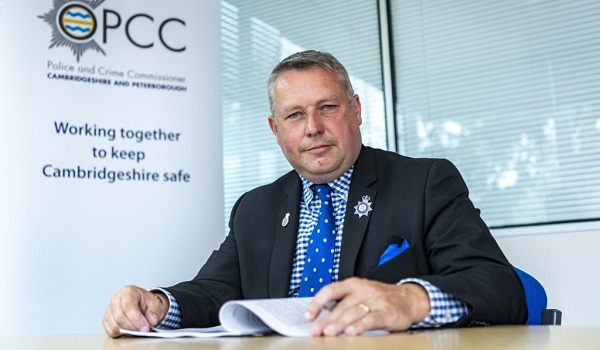Coroner urges improved data-sharing by undercover police
Counter-terrorism police should be obliged to pass on information from undercover investigations to teams managing extremist offenders after their release from prison, a coroner has found.
Judge Mark Lucraft QC made a series of recommendations to prevent future deaths after earlier this year hearing the inquests into the 2019 terrorist murders of Cambridge graduates Saskia Jones, 23, and Jack Merritt, 25.
In a report published on Wednesday (November 3), he laid out 22 areas of concern and proposed action he believes should be taken to prevent such an atrocity occurring again.
Ms Jones and Mr Merritt were murdered by extremist Usman Khan, 28, at an alumni event organised by prisoner education scheme Learning Together on November 29, 2019.
Khan strapped knives to his hands and killed the pair as well as injuring three others in a rampage at Fishmongers’ Hall in the City of London.
Wearing a fake suicide belt, he was chased out on to London Bridge by attendees armed with a narwhal tusk and a fire extinguisher, before being shot by police.
In May, jurors at the inquests concluded there were failings and omissions among probation, police and the security services.
Mr Lucraft, who was chief coroner and is now the most senior criminal judge at the Old Bailey, said measures must be put in place to ensure relevant information is passed on to multi-agency public protection arrangements (MAPPA) panels that manage offenders.
Khan spent eight years in jail for plotting to set up a terror training camp in Pakistan and on his release in December 2018, he was assessed as being a “very high risk of serious harm” to the public.
MI5, which had already launched a covert investigation with West Midlands Police supported by Staffordshire Special Branch, had intelligence that Khan was planning to “return to his old ways” and aspired to carry out an attack.
Yet this information was not passed on by police to others involved in Khan’s management in the community.
Mr Lucraft said: “This case gives cause for concern that counter-terrorism police may be in possession of intelligence or information which may be useful to the management of an offender by the MAPPA panel, but that such intelligence or information may not be brought to the knowledge of or taken into account by MAPPA agencies.
“This issue should be addressed, preferably by ensuring that a single police officer from any covert investigation… is responsible and accountable for ensuring that intelligence and information is properly shared and taken into account.
“Consideration should also be given to how intelligence known only to the Security Service may be taken into account for the purposes of MAPPA.”
He also raised concerns that a serious offender such as Khan had been able to attend the event without Learning Together doing a formal risk assessment or clearly telling the venue a convicted extremist was on the guest list.
The report found the prisoner education scheme should also consider the risks posed by placing young students alongside hardened offenders as part of its courses.
It recommended that forensic psychologists should be heavily involved in assessing the risk posed by extremists on release from prison and not just probation officers.
Forensic psychologist Ieva Cechaviciute assessed Khan in early 2018 and warned he was likely to reoffend on release, but a later assessment carried out by a probation worker in 2019 was far less detailed and much more optimistic.
Mr Lucraft found probation staff put too much weight on the fact that Khan appeared to be polite and cooperative once he was out of jail.
He also called for better records to be kept of decisions to allow serious offenders to take part in certain activities.
Khan was allowed to travel alone by train to the event at Fishmongers’ Hall, but there was no written record of this being positively approved by a MAPPA panel.
It is believed he attached a fake suicide belt to his body while on the train, and carried knives in his bag.
Mr Lucraft said police should be given the power to search such offenders without needing to establish the legal grounds to do so.
He also recommended that plans be brought in for random drugs tests of serious offenders after release, because Khan was able to buy and take cocaine despite being under strict licence conditions. Had he been caught, he would have been recalled to prison.
Throughout his report Mr Lucraft highlighted a number of areas of concern with recommendation in order to prevent future deaths:
- It was “a matter of concern” that no formal risk assessment was carried out for the Learning Together event, and recommended that academic events attended by serious offenders should be subject to “proper formal risk assessment”.
- He also expressed concern that “a major event could be held by a university at a livery company hall in London without clear communication of the fact that it would be attended by serving and recently released serious offenders”. Consideration should be given to requiring universities to tell venues about “high risk features of events”.
- Learning Together and the University of Cambridge had not given consideration to the risks of placing serious offenders alongside young students during courses, but must do so in future.
- The education scheme operated courses in prisons without being given information about the risk profiles of offenders taking part. Prisons should be “at least encouraged” to share some information with education providers.
- Further risk assessments should be considered for courses that involve continued contact with offenders after their release from prison.
- Mr Lucraft suggested forensic psychologists should either prepare every report on the risk extremist offenders pose on release, or at least carry out a detailed review.
- Forensic psychologists could also attend MAPPA meetings that manage serious offenders after release into the community.
- A risk rating for an offender could currently be changed without a full assessment being carried out and no record of the rationale. Mr Lucraft called for this issue to be considered by the Justice Secretary.
- Offender managers should be required to always make a written record of the rationale behind decisions to vary licence conditions or allow certain activities, for example, Khan’s unaccompanied trip to London, and whether MAPPA has approved the decision.
- MAPPA meetings could be audio recorded to make sure there is a record of all decisions.
- Further guidance should be issued to make sure offender managers and MAPPA panel members assess risks of permissions given under licence conditions.
- Probation officers “may give insufficient regard to instances of dishonesty in self-presentation by extremist offenders” and should be given further training in assessing this.
- They may also “attach excessive weight” to the fact an offender is appearing to comply with licence conditions and is being polite, rather than focusing on an absence of positive behaviour.
- The report said police and probation staff should be encouraged to communicate properly with event organisers and venue hosts when an extremist offender has been permitted to attend.
- Despite being under strict licence requirements, Khan was able to buy and take cocaine. Mr Lucraft said plans should be made for random drug testing for offenders who have been released on licence.
- Measures should be put in place to stop mentoring of serious offenders being suddenly withdrawn. Support from the practical mentor who was helping Khan find employment was suddenly withdrawn, despite lack of a job and isolation having been flagged up as key risk factors.
- Plans should be put in place to make sure all MAPPA meeting attendees receive copies of the minutes and be asked to formally confirm that they have read them.
- MAPPA members may not be made aware of important information from the offender’s time in prison. Up-to-date intelligence and risk assessments should be provided.
- A single police officer from any covert counter-terrorism investigation should be made responsible for passing on relevant information to the MAPPA panel.
- Ways to pass on security sensitive information from MI5 should also be considered.
- Police officers responsible for monitoring terrorists after release should report to MAPPA on how regularly they are seeing offenders.
- Police officers should be given the legal power via licence conditions to search terrorist offenders without the need to establish specific legal grounds.







